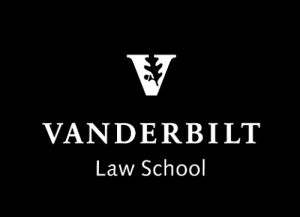 Back in April of last year, I wrote about how our current legal education is failing lawyers. We need some innovative thinking on how we are teaching lawyers the skills to understand and leverage technology in the delivery of legal services.
Back in April of last year, I wrote about how our current legal education is failing lawyers. We need some innovative thinking on how we are teaching lawyers the skills to understand and leverage technology in the delivery of legal services.
The truth is that a solo practitioner can deliver top-notch legal service with the right model and technology at their disposal. Boutique law firms are challenging the big dogs by delivering quality legal service from excellent lawyers with flexible business models that allow them to meet clients’ operational needs. But to do that, lawyers need to learn how to do it, and law school has not been the place to get those skills.
Enter Larry Bridgesmith, Adjunct Professor at Vanderbilt University Law School, and the brainchild behind the law school’s Law and Innovation Program. Larry is also a lawyer of 30+ years and the CEO of Legal Alignment, through which he provides managed services and technology support to clients in legal services. Let’s just say he knows a thing or two — because he’s seen a thing or two.
I had a chance to sit down at Legalweek with Larry and talk about the Law and Innovation Program as well as the upcoming Summit on Law and Innovation in Practice to be held April 30th in Nashville.
The Program at Vanderbilt is in its fourth year and is the product of the vision of Bridgesmith and the Dean of the Vanderbilt Law School, Chris Guthrie. The program is non-traditional and funded out of the Dean’s budget, so no faculty approval is required. Why does that matter? Because law school faculties are old school, and selling them on the need for this kind of program is too hard. Note that those are my words, not Bridgesmith’s. I’ve seen firsthand law school deans who are unwilling to provide learning in this area for law students due to pressures of the ABA requirements and the inability to fit them into the program at the purported expense of traditional areas of the law, like Real Property. (I’ve never even seen the words Rule of Perpetuities since the bar exam. Have you?) Huge kudos to Guthrie for 1) seeing the need here, and 2) being willing to think outside the box to work with Bridgesmith to put together a program with real life skills for lawyers.
Of course, we do have law schools across the country that are working on programs to address eDiscovery (some have great ones like UF and Georgetown) and other legal technology components. But they are still too few, and still not sufficient generally to prepare lawyers for the real world. And that’s why I love Vanderbilt’s program. The courses included in the track are Law 2050 — in which they bring in technologists and consumers of legal to talk about state of law and how it needs to change, and where they are going — Technology and the Law (taught by my good friend Marc Jenkins, Adjunct Professor and Director and Corporate Counsel at Asurion), eDiscovery, Legal Project Management, Human Centered Design, Mediation, and Business and Law. All courses that lawyers would benefit from significantly. And ones that I would love to take right now. Several of the classes are full to capacity with double-digit waiting lists — for an alternative track of legal education. That tells me a lot and it should be something for other law school deans to look at.
After talking with Bridgesmith, the SOLI Summit is one you want to check out. Send your office chair, your innovations officer, your person without a title but who’s looking at the future of the practice of law and what we should be doing to meet not only our clients’ needs now, but the other 80% of clients who are completely underserved because they can’t afford it and lawyers can’t afford to help them.
This Summit is more than just a conversation — Bridgesmith wants participants and speakers to work together to develop an action plan for the industry that they can start to work on. Bridgesmith is a huge proponent of technology and the use of it to redefine the practice of law, but cautions that in the immutable words of Steve Jobs, “Technology is not the solution. People are.”
And the design of SOLI is set up to facilitate conversation with a group of folks spearheading innovation in legal including Marie Bernard, CEO of Nextlaw Labs and formerly Europe Director of Innovation at Dentons and Strategic Advisor to Nextlaw Labs; Mary Juetten of Traklight; Nicole Braddick, CEO of Theory and Principle; Patrick Palace of Palace Law; and several others. Bridgesmith has compiled a list of folks across the spectrum — from educators to firms to in-house counsel — and that will provide a good mix of perspectives. I’d love to see someone from government on the list as that is an area ripe for innovation and desperately in need of it. The conference, held on campus at Vanderbilt, will include interactive dialogue with TED talks-style presentations and facilitation by Dean Guthrie as well. I love that Guthrie is not only supporting the program, but involved in its success.
Check out the SOLI event — Nashville is beautiful in the spring and I may know for a fact that there’s some pretty good entertainment downtown once you’re finished reshaping the legal profession.
Completely unrelated, but if you are in New York City tonight, you’ll want to check out the reception for retiring Judges Andrew Peck and James Francis at Cardozo Law. Relativity’s education director, David Horrigan, will host a panel of judges to examine their decisions over the years, including the oral arguments from today’s case before the Supreme Court the case between Microsoft and the Justice Department that will have significant privacy implications. The event is sponsored by Relativity and ACEDS.
And if Texas is more your style, I’ll be at the Masters Conference in Dallas this Wednesday. We’ll be talking about AI, blockchain, eDiscovery, privacy, and innovating in legal tech. If you are there, please be sure to say hello!
 Kelly Twigger gave up the golden handcuffs of her Biglaw partnership to start ESI Attorneys, an eDiscovery and information law Firm, in 2009. She is passionate about teaching lawyers and legal professionals how to think about and use ESI to win, and does so regularly for her clients. The Wisconsin State Bar named Kelly a Legal Innovator in 2014 for her development of eDiscovery Assistant— an online research and eDiscovery playbook for lawyers and legal professionals. When she’s not thinking, writing or talking about ESI, Kelly is wandering in the mountains of Colorado, or watching Kentucky basketball. You can reach her by email at [email protected] or on Twitter: @kellytwigger.
Kelly Twigger gave up the golden handcuffs of her Biglaw partnership to start ESI Attorneys, an eDiscovery and information law Firm, in 2009. She is passionate about teaching lawyers and legal professionals how to think about and use ESI to win, and does so regularly for her clients. The Wisconsin State Bar named Kelly a Legal Innovator in 2014 for her development of eDiscovery Assistant— an online research and eDiscovery playbook for lawyers and legal professionals. When she’s not thinking, writing or talking about ESI, Kelly is wandering in the mountains of Colorado, or watching Kentucky basketball. You can reach her by email at [email protected] or on Twitter: @kellytwigger.






